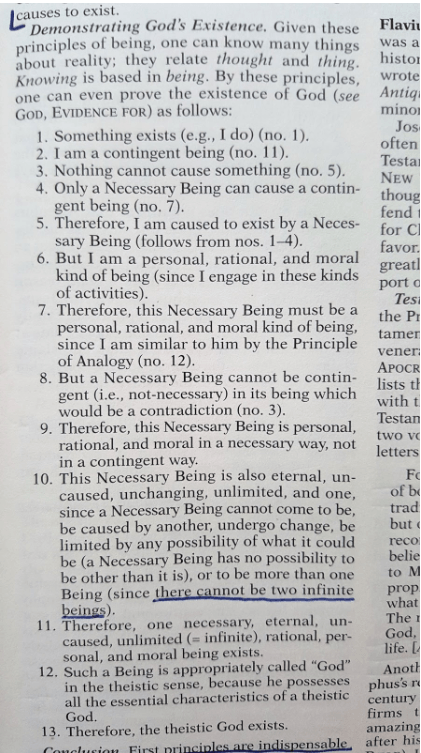Reasons to Believe
This is the fifth, of a hopefully weekly series, that explores faith, religion, and Christianity. The idea is to share with you my faith, issues I am working on, and to promote discussion.
“The willingness to admit your weaknesses and your vulnerabilities is actually very powerful. - Daniel Goleman”

Please check out the previous discussions:
Disparity on Display.
This discussion takes a look at disparity and injustice and proposes guidance on a response.
Comfort and Contentment
This post examines my struggle with the differences between being content and being comfortable.
Testify
This post documents part of my journey that lead me from being an enemy of God to being saved by Jesus Christ.
Praise and Worship
This takes a look at the awkward feelings about publicly praising and worshiping the Lord and what difference that has made in my life.
Let me begin by admitting that I am weak at defending my faith in terms of logical arguments and structural reasoning.
I have been avoiding this post because I don’t want to write about things that I am not good at explaining and not interested in, but felt the need to point to sources that are better equipped than I am to help others believe.
However, even though I am not great at this, it does not excuse me from needing to be able to do so at least to some degree. One of the most quoted verse about apologetics reads in part: “always being prepared to make a defense to anyone who asks you for a reason for the hope that is in you; yet do it with gentleness and respect”.
And for that reason, I am writing this post today.
A Micro Intro to Apologetics
Apologetics is defined as “reasoned arguments or writings in justification of something, typically a theory or religious doctrine”.
Therefore, Christian Apologetics is the defense of the Christian faith.
My preeminent exposure to Christian Apologetics is through the Baker Encyclopedia of Christian Apologetics by Norman L. Geisler.
But more from that in a moment.
In my testimony, I forgot to mention some other things I read besides the Bible that transformed my understanding.
One book that was given to me was called More Than a Carpenter by Josh McDowell. I always remember that there was a line on the back cover that read: “It is a hard-hitting book for people who are skeptical about Jesus’ deity, his resurrection, and his claims on their lives.”
This irritated me because I didn’t view myself as skeptical about Jesus.
In fact I didn’t think of Jesus at all, except for how much I hated God, Jesus, church and everything else about religion.
The exact details escape me now, but eventually I read More Than a Carpenter and I don’t remember it being all that impactful at the time.
However, when I did read it I found out about some information that challenged my thinking about things I never really thought about.
With chapters such as “What Makes Jesus So Different?”, “Lord, Liar, or Lunatic?”, “What about Science?”, “Are the Bible Records Reliable?”, “Who Would Die for a Lie?”, and the rest, I had to face things I was ignoring, sorta like writing this post…
So What?
The reason I bring up Josh McDowell is because he was one of the first examples of a Christian apologist that I had ever come across which is not hard to believe considering that I seriously thought no one had ever really read the whole Bible.
Eventually I would end up reading books such as C.S. Lewis’ Mere Christianity, Lee Strobel’s The Case for Christ, and Know Why You Believe by Paul Little.
These are good reads for the everyday non-scholar.
These books further shaped my understanding about Christianity along with time in Church on Sunday mornings.
However, sometimes I wade into deeper waters beyond my general understanding.
I can comprehend some of these books, but admittedly they were a bit much for me at times but may be useful to more academically oriented readers.
Alvin Plantinga has a book called God, Freedom, and Evil that provides a “discussion of natural theology (arguments to prove the existence of God) and natural atheology (arguments for the falsehood of theistic belief) Plantinga focuses on two of the traditional arguments: the ontological argument as an example of natural theology, and the problem of evil as the most important representative of natural atheology”.
Another book that I muddled through was What Does God Know? by William Lane Craig. This book was challenging to wrap my mind around, but provided some thought provoking discussions on Divine Foreknowledge and Human Freedom.
Fortunately, Dr. Craig understands that not all people are up to this skill level.
He provides much easier to digest examples of defending the faith with his book On Guard: Defending Your Faith with Reason and Precision. This is the book I got the image from at the start of this post. I have not yet read this book, but have it and should get around to it, especially now that I am thinking about the subject of apologetics.
Dr. Craig is also the author of Reasonable Faith: Christian Truth and Apologetics, which I also haven't read, and he is a contributor to the website http://www.reasonablefaith.org/ from which I have read several articles that are elucidating.
The point being that there are several great sources for providing a thoughtful, logical, and well reasoned belief in Christianity.
I have no intentions of taking further steps at the time being on breaking down and analysing each particular argument here on this blog, but want to point the way to others who have done the “heavy-lifting”.
It is important to remember the verse about “always being prepared to make a defense to anyone who asks you for a reason for the hope that is in you; yet do it with gentleness and respect”.
It is especially important to remember the part about gentleness and respect.
I believe wholeheartedly that “no one has ever been argued into believing” and I think Christian Apologetics has great value and should not be ignored, but also should not be used as an intellectual weapon to attack people and their beliefs.
Rather it should provide a way to answer serious questions in a reasonable manner.
Oh and before I go, I almost forgot, here is a taste of what Christian Apologetics is all about from the Baker Encyclopedia of Christian Apologetics by Norman L. Geisler.
This passage is about First Principles which “are the foundation of knowledge. Without them nothing could be known” (p. 250). These are used in the image below to provide a logical apologetic about Demonstrating God’s Existence.

Also from the Baker Encyclopedia of Christian Apologetics by Norman L. Geisler, the Conclusion explains that “First principles are indispensable to all knowledge. And first principles of being are a necessary prerequisite for all knowledge of being. These first principles are undeniable or reducible to the undeniable. For the very attempt to deny them affirms them. By them not only is reality known, but the existence of God can be demonstrated” (p. 253).
Another entry has this to say about Truth:
Truth, Nature of. from the Baker Encyclopedia of Christian Apologetics by Norman L. Geisler.
“The nature of truth is crucial to the Christian faith. Not only does Christianity claim there is absolute truth (truth for everyone, everywhere, at all times), but it insists that truth about the world (reality) is that which corresponds to the way things really are” (p. 741).
Truth is not “what works” -- “Even when results are in, one can still ask whether the initial statement corresponded to the facts. If it did not, it was not true, regardless of the results” (p. 741).
Truth is not “that which coheres” -- “At best, coherence is a negative test of truth.l Statements are wrong if they are inconsistent, but not necessarily true if they are” (p. 741).
Truth is not “that which was intended” -- “If something is true because someone intended it to be true, then all sincere statements ever uttered are true - even those that are patently absurd. Sincere people are often sincerely wrong” (p. 741).
Truth is not “what is comprehensive” -- “Comprehensiveness is one test for truth, but not the definition of truth.One can have a comprehensive view of what is false or a superficial or incomplete view of what is true” (p. 741).
Truth is not “what is existentially relevant” -- “What is true will be relevant, but not everything relevant is true. A pen is relevant to an atheist writer. And a gun is relevant to a murderer. But this does not make the former true nor the latter good. A truth about life will be relevant to life. But not everything relevant to one’s life will be true” (p. 742).
Truth is not “what feels good” -- “Even if truth makes us feel good - at least in the long run - this does not mean what feels good is true. The nature of truth does not depend on the result of truth” (p. 742).
What Truth Is. -- Correspondence with Reality.
“Truth is what corresponds to its referent. Truth about reality is what corresponds to the way things really are. Truth is “telling it like it is.” This correspondence applies to abstract realities as well as actual ones. There are mathematical truths. There are also truths about ideas. In each case there is a reality, and truth accurately expresses it.
Falsehood, then, is what does not correspond. It tells it like it is not, misrepresenting the way things are. The intent behind the statement is irrelevant. If it lacks proper correspondence, it is false” (p. 742).
And so, “just because you don’t believe something is true, doesn’t make it not true. Truth is truth.”
If this relates to you and you are interested in knowing more, please ask someone. Me. My wife. A local pastor. A neighbor you know who is a Christian. But please ask and I guarantee you that they will be excited to tell you more. They will especially appreciate that you asked them so that they are not forcing their beliefs upon you but getting your permission to share. It may even be something they have been praying for.
Lord willing, see you all next Sunday!
Thanks,
@strangerarray

Please follow me, @stragerarray, to keep up to date with my other fiction, nonfiction, and other post. Also feel free to send donations to: PayPal.Me/michaelpaine because we all could use some spare change.
Hey y’all for more great content check out my friends:
(All robot images from steemd.com)
 @stellabelle |  @ericvancewalton |  @cristi |  @micheletrainer |  @mctiller |
|---|---|---|---|---|
 @lukeofkondor |  @soulsistashakti |  @mindover |  @mars-eve |  @patrick-g |
 @kaylinart |  @romanskv |  @the-alien |  @razvanelulmarin |  @strangerarray |
Well as you know I completely disagree but I think you are such a nice person and I love your goofy smile :)
Thank you for being open to at least looking at my post.
And, yes, I am as goofy as I look.
Ha ha :)
The only reason not to believe: intelectual honesty.
Belief is not a choice, but a conclusion.
Thanks for your consideration.
Love reading your posts. Keep them coming.
Thanks!
Wow! Great apologetics post. And some good questions came up too. Hopefully you planted a few seeds in enquiring minds.